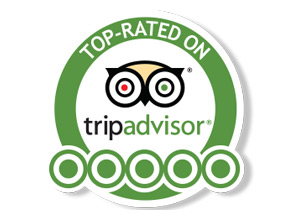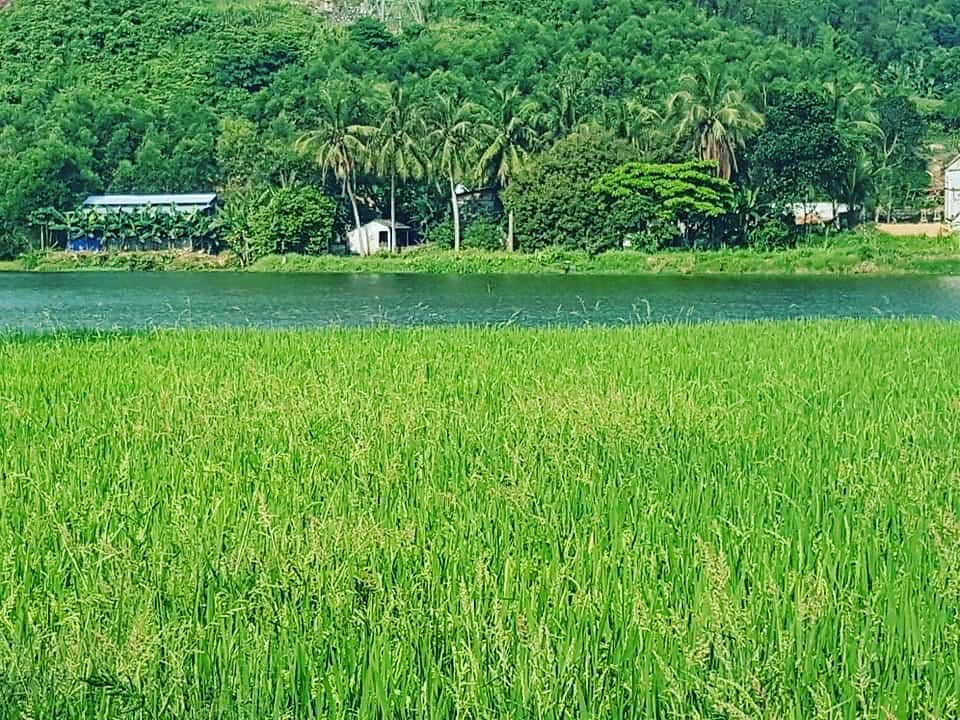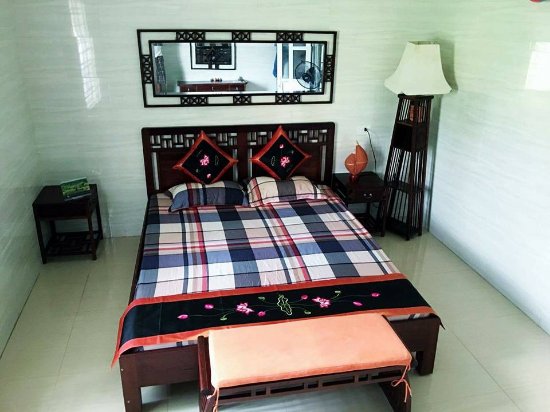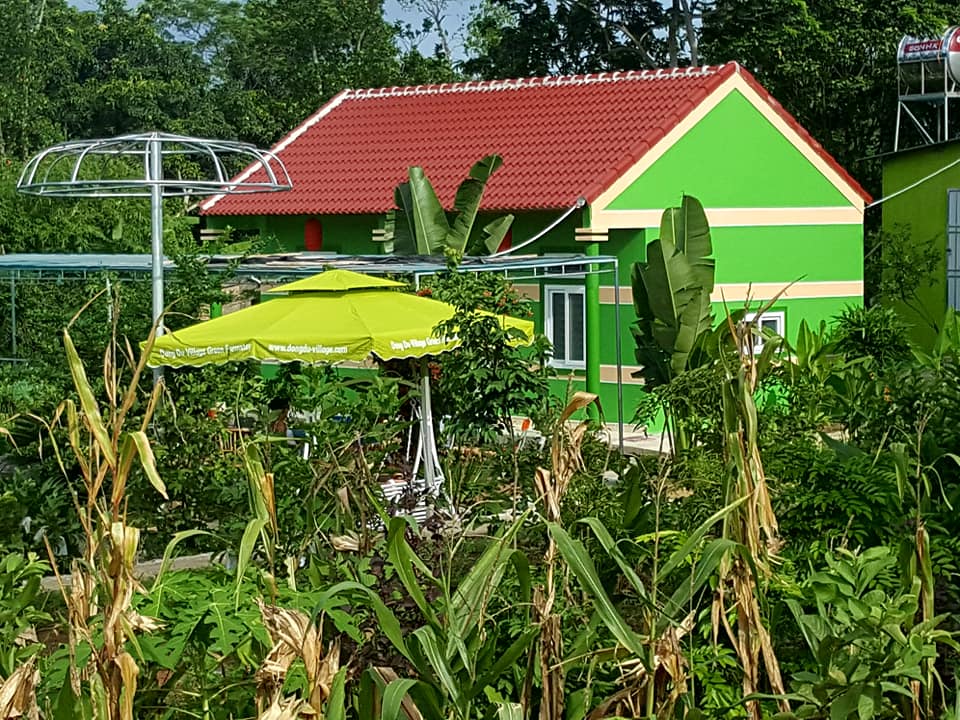Travel Blog
Dong Du Village Lakeside Farmstays
Responsible tourism in Vietnam
Updated: 7/4/2020 | 4:59:21 PM
Tourism is growing fast in Vietnam, a country with a dark history that is looking towards a bright future. But there are plenty of issues to keep in mind when it comes to responsible tourism in Vietnam - from the overcrowding and pollution of UNESCO-rated Halong Bay, to the fair treatment of Hoi An's skilled tailors. Read our tips below to find out how to travel better in Vietnam.
Responsible travel in Vietnam
Responsible tourism tips
02. The Dam Sen Water Park in Saigon is a popular daytrip for families wanting to escape the tropical heat. However, the water park is part of the bigger Dam Sen Theme Park, which has a number of captive animals, included poorly treated elephants. Bears, monkeys and dogs are dressed up and made to perform for visitors – so do not support any part of this park.
03. If snorkelling or diving, be sure to travel with a responsible operator. Never touch or step on coral, and report any operator who drops anchor on live coral.
04. Dress modestly, especially when visiting religious sites. Much of Vietnam is still very conservative, especially in rural areas, and going nude or topless on beaches is never appropriate.
05. Be discreet about showing affection in public – it’s not as culturally acceptable as it is elsewhere. Vietnamese people make up for their conservative dress by asking impertinent questions – it’s not uncommon to be asked about your marital status, income or family by a virtual stranger – but be polite even if you don’t want to answer directly. It’s all just part of the culture.
06. Never touch anyone’s head – it is the highest point of the body and must be respected. And never show the soles of your feet. These are the symbolic “lowest” point of the body, and this is an extremely offensive gesture.
07. Much of Vietnam is still incredibly poor. Shopping at local stalls, eating in local restaurants, tipping guides, hotel and restaurant staff will have a huge impact on their income. However, giving sweets to children should be avoided, as should giving money to children in the street – even if they are selling something.
08. If you do want to take photos of local people – ask permission. It’s polite, respectful, and a wonderful opportunity to strike up a conversation. You’ll come away with a memory of the encounter, and not just a photo. And if they are uncomfortable with it – respect that, and leave them in peace.
09. Try and hire a local guide if possible – you’ll put money back into the local community, and get to learn from someone who really knows the area and culture. Taking a cyclo tour is another great way to support the local economy, and support a trade which is dying out in favour of taxis and motorcycles.
Responsible Travel - What you can do in Lan Ha bay or Cat Ba island ?
Choose an operator with a responsible tourism policy. Ask about their methods of disposing of trash and wastewater, and whether they invest in any local clean up initiatives. Find out if the staff are local – many of the fishing communities around the bay are no longer able to fish – as the sealife is dying, and the waters polluted – so employment in tourism is a way of sustaining their floating communities.
Don’t just stay on your ship. Find a tour which visits local communities, and which allows you the chance to interact with the people and spend money by buying refreshments or crafts.
If your boat crew or guides throw litter into the bay, report this to your operator and shout about it on review sites and social media. The word will spread that tourists demand responsible practices, and more will begin to follow suit.
Take a two-night cruise rather than one night – this allows you to sail further and to reach some of the more pristine bays and islands, beyond the pollution and litter. But remember – once there, you are responsible for keeping it this way.
People & Culture
Stopping child sex tourism
Vietnam’s legacy of hardship continues to spill over into the next generation. Child trafficking – for slavery or the drugs trade – is a serious concern here, and Vietnam has one of the highest numbers of children forced into the sex industry in the world. Tourism is a major contributor to this, as around 15 percent of females associated with prostitution under 18. Note that we do not refer to these young people as 'child sex workers' or 'child 'prostitutes', because as campaigning organisations have rightly pointed out, these children are not working. They are victims of abuse and rape. Indeed many children are now being trafficked – kidnapped or sold – to be abused overseas as well as in their home country.What you can do
Don’t assume that if you are not in Vietnam to take advantage of its children, then you are not part of the problem. Laws in Vietnam are not adequate to protect children, and there is no explicit criminalisation of child sex tourism – so making a stand when you can is a crucial part of the fight against it. Some hotels, bars and restaurants will have signs or information in their menus stating their commitment to stamping out child prostitution – so try and support these if you can.
If you see western tourists with local children, or a Vietnamese child being brought into a hotel by a local adult, report it to the owner of the hotel or restaurant. It may be entirely innocent, but any ethical business will at least enquire. If they fail to act, take your business elsewhere, or if you are very concerned that the child is in danger, report it to the Vietnam Child Helpline on 0084 1800 1567 (toll free), run by Child Helpline International.
The best way to stamp out child sex tourism is to provide an alternative for the children. Social enterprise projects train and employ kids and young adults from disadvantaged backgrounds to prevent them from having to turn to this kind of work.
(Source: Dong Du Farming Eco Village)
Other news
- Back to nature in Central Vietnam’s Pu Mat National Park, Western Nghe An
- The most famous tourist spots and attractions in Nghe An, Vietnam
- Nghia Dan Sunflowers Valley Attracts Beauty Seekers in Western Nghe An
- Pu Mat Natural Park - Western Nghe An
- Western Nghe An Tourism - Responsible Travel
- Way to Western Nghe An‘s treasure
- Let's explore Western Nghe An and Pumat Natural Park
- Annamite Range - Western Nghe An
- The biodiversity of Western Nghe An Biosphere Reserve
- Explore Western Nghe An while staying in Dong Du Eco Farmstay











